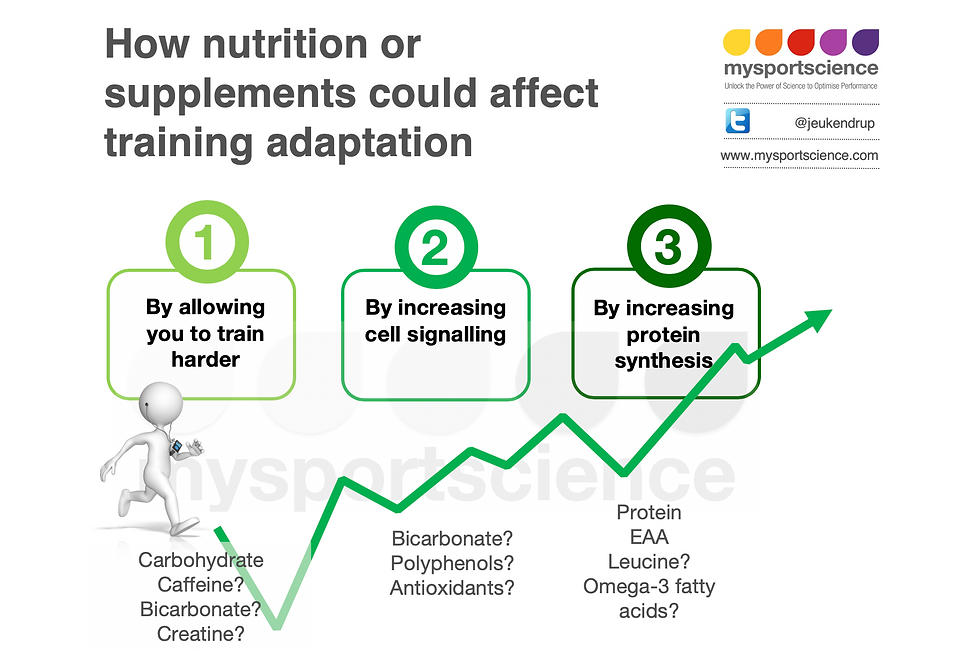Beta-alanine: the new creatine?
- Asker Jeukendrup
- May 3, 2020
- 3 min read

Beta-alanine has rapidly become a very popular supplement amongst competitive athletes in a wide range of sports. In 2005 few people had heard of beta alanine and it wasn’t possible to find it on the shelves or even online. This changed after Professor Roger Harris, who was also the brain behind the supplement creatine, started to publish papers on the potential effects of beta alanine.
Indeed follow-up studies showed improvements in high intensity exercise performance. These improvements are generally seen during all-out exercise between 1 and 4 min of duration.
If the exercise is shorter, there does not seems to be a benefit and if the exercise is longer, the results seem a little more varied. Some studies (5-15 min) show benefits, others don’t. If the exercise is much longer (1h or so) there don’t seem to be benefits. Beta-alanine does not seem to help in team sports where the nature of the activity is more intermittent either. So it appears that there is a pretty specific window around 1-4 min where beta-alanine can be effective. Cyclists may wonder if beta alanine could help them with a 1-4 min surge later in a race. To the best of my knowledge there is no research to either confirm or disprove the potential benefits here. A clever student reading this may just have received a good research idea for a thesis. Finding the answer would definitely have some practical relevance.

Typically, studies have used supplementing strategies of multiple doses of 400 mg or 800 mg, administered at regular intervals for up to eight hours (4-8 times a day), over periods ranging from 4 to 10 weeks. After a 10-week supplementing strategy, the reported increase in intramuscular carnosine content is on average about 80% (but the range is quite large: around 20 to 200%). Some athletes may therefore benefit more than others. This does not mean that the buffering capacity is increased by 80%, but such changes certainly result in measurable changes in buffering capacity.
Is beta alanine safe? It appears to be safe. It is a naturally occurring compound and there is only one side effect that is frequently reported. This side effect is “pins and needles”. Pins and needles, or the correct medical term is paraesthesia, is a pricking, burning, tingling or numbing sensation that is usually felt in the arms, legs, hands, feet and nose. The exact reason why this happens is not clear but the effects wear off and there are no long term negative effects. Beta-alanine usually comes in a slow release form, which means it is absorbed slower and over a longer period of time and this takes care of most of the symptoms. So if you use slow-release beta-alanine you may not get any symptoms at all or at least they will be very much reduced.
Whether or not beta-alanine can help the athletes performance, therefore depends very much on what the performance is. If your event is between 1-4 min in duration it seems to be worth a try. There are not many supplements that can be backed up by
1.Evidence of efficacy
2. Multiple studies reproducing the effect
3. A clearly described and plausible physiological mechanism
Beta-alanine has all of the above, although it may apply primarily to the window of 1-4 min as discussed.
This is just a brief summary. More detailed post with new findings and practical implications will follow.





Comments